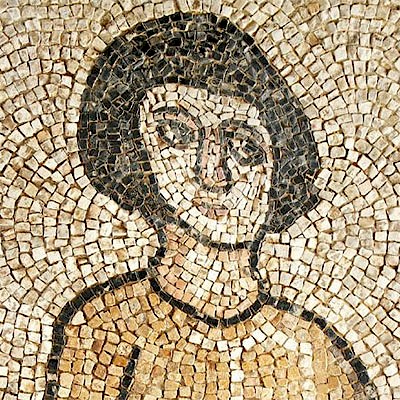Lot of 2 Costa Rican Stone Celts - Jade and Greenstone
Lot 131a
About Seller
Artemis Gallery
686 S Taylor Ave, Ste 106
Louisville, CO 80027
United States
Selling antiquities, ancient and ethnographic art online since 1993, Artemis Gallery specializes in Classical Antiquities (Egyptian, Greek, Roman, Near Eastern), Asian, Pre-Columbian, African / Tribal / Oceanographic art. Our extensive inventory includes pottery, stone, metal, wood, glass and textil...Read more
Estimate:
$1,000 - $1,500
Absentee vs Live bid
Two ways to bid:
- Leave a max absentee bid and the platform will bid on your behalf up to your maximum bid during the live auction.
- Bid live during the auction and your bids will be submitted real-time to the auctioneer.
Bid Increments
| Price | Bid Increment |
|---|---|
| $0 | $25 |
| $300 | $50 |
| $1,000 | $100 |
| $2,000 | $250 |
| $5,000 | $500 |
| $10,000 | $1,000 |
| $20,000 | $2,500 |
| $50,000 | $5,000 |
| $100,000 | $10,000 |
| $200,000 | $20,000 |
About Auction
By Artemis Gallery
Aug 2, 2018
Set Reminder
2018-08-02 10:00:00
2018-08-02 10:00:00
America/New_York
Bidsquare
Bidsquare : Antiquities | Egypt, Greece, Italy, Asia
https://www.bidsquare.com/auctions/artemis-gallery/antiquities-egypt-greece-italy-asia-3352
Featuring two incredible collections - one in storage for more than 20 years! Artemis Gallery info@artemisgallery.com
Featuring two incredible collections - one in storage for more than 20 years! Artemis Gallery info@artemisgallery.com
- Lot Description
Pre-Columbian, Costa Rica, Guanacaste / Nicoya region, ca. 250 to 800 CE. A lovely pair of avian axe god celt pendants - the lighter green celt finely carved from jade, the darker green celt finely carved from greenstone - both depicting a bird or bird-shaman figure with abstract beaked visages topped by banded headdresses or crest feathers. In the Pre-Columbian World, birds were regarded as animals of the celestial realm that served as messengers between humankind and their deities. Both are also drilled through the headbands for suspension. Two fine examples from the ancients of Costa Rica. Size of largest: 0.625" W x 2.125" H (1.6 cm x 5.4 cm)
The value of jade in the Pre-Columbian world lay in its symbolic power; scholars believe its color was associated with water and vegetation. Costa Rica, along with Mesoamerica, is one of the two regions where jade was extensively carved in the Pre-Columbian world. The earliest example of worked jade, a pendant excavated from a burial site on the Nicoya Peninsula, dated to the mid-first millennium BCE. It appears that jade continued to be carved into personal ornaments, usually depicting anthropomorphic deities or animals such as birds, monkeys, or frogs, until approximately 700 CE when gold became the favored material to fashion such ornaments.
Provenance: ex Craig Hendrix collection, South Carolina, USA; ex Charles Craig Jr. collection, Costa Rica, acquired in the 1960s and 1970s
All items legal to buy/sell under U.S. Statute covering cultural patrimony Code 2600, CHAPTER 14, and are guaranteed to be as described or your money back.
A Certificate of Authenticity will accompany all winning bids.
We ship worldwide and handle all shipping in-house for your convenience.
#154115Both items have minor abrasions to faces and bodies, otherwise intact and very good. Light earthen deposits and smooth surface textures throughout.Condition
- Shipping Info
-
All shipping is handled in-house for your convenience. Your invoice from Artemis Gallery will include shipping calculation instructions. If in doubt, please inquire BEFORE bidding for estimated shipping costs for individual items.
-
- Buyer's Premium



 EUR
EUR CAD
CAD AUD
AUD GBP
GBP MXN
MXN HKD
HKD CNY
CNY MYR
MYR SEK
SEK SGD
SGD CHF
CHF THB
THB













